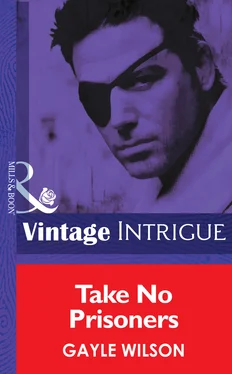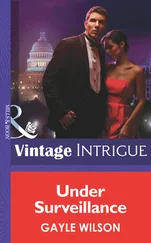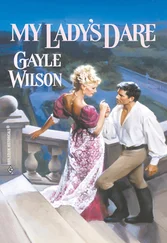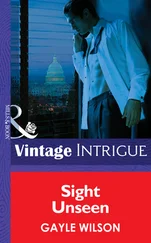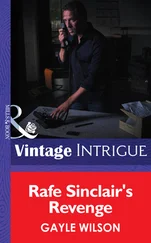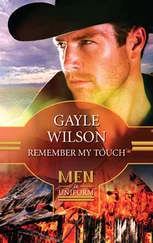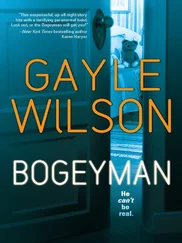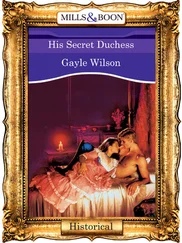The colonel, a tall, spare man already deeply tanned by the relentless Afghan sun, raised his index finger and then moved it in a circle. His aide, who had apparently been keeping a watchful eye on their conversation, placed his hand on the shoulder of the chopper pilot and bent to shout whatever unspoken instruction he’d just been given against his flight helmet. The helicopter immediately began to turn, its nose tilting slightly downward as it did.
Before it had completed the maneuver, there was a loud bang. The Kiowa seemed to hesitate in midair, almost as if it were catching its breath.
Then the noise of the jet engine, which had made normal conversation impossible, was no longer there. In its sudden and eerie absence Grace could hear what sounded like the clatter of small-arms fire from below and the continuing whomp, whomp, whomp of the rotor blades over their heads.
“What the hell?” Stern muttered before he leaned forward, shouting the same question to his aide.
As he did, Grace was again able see the ground beneath the chopper. Following the Kiowa’s shadow, a stream of horsemen galloped over the rocky terrain below. The gunfire she’d heard had obviously come from the rifles they brandished in upraised hands.
She couldn’t hear the answer the aide had conveyed from the pilot to Stern, but the colonel’s expression when he turned toward her left no doubt that it hadn’t been what he’d been hoping to hear. His lips flattened as she met his eyes, trying to keep hers from revealing the fear that had already tightened her chest and rested cold and queasy in the bottom of her stomach.
“Looks like the bastards got lucky.”
Unlike the colonel’s previous comments, this one hadn’t been shouted. And there was a note in his voice she liked even less than she had liked his previous condescending manner.
“What does that mean?”
The hesitation before he answered lasted through several more endless seconds. Her heart rate, already elevated, increased exponentially while she waited.
“They hit the engine with those pea shooters. We’re going down.”
His eyes held hers, watching for reaction, she supposed. Although she tried to control any outward sign of what she was feeling, she was the one who finally broke the contact between them, looking down again on the horsemen who, even as she watched, seemed to grow larger and more menacing. The pilot fought to control their too-rapid descent, the blades thankfully still turning above their heads, allowing him a chance to try to set the chopper down.
She’d always heard that when you faced death, your entire life flashed before your eyes. Fingers tense around the metal arms of her seat, she realized that in her case, at least, that wasn’t true. There was only one image that kept repeating over and over in her head.
She had run into one of the old hands at the Agency shortly after she’d been called to testify before Congress. She hadn’t seen him in a couple of years, certainly not to talk to, so that she’d wondered at the time if he had arranged their “chance” meeting. If so, she was grateful. Most of the others at Langley had simply turned the other way as she walked by.
Neil Andrews had looked her in the eye. His warning had been equally straight and to the point:
“Watch your back,” he’d said. “Don’t think for a minute that they’re going to let you get away with it.”
“I’m sorry,” Stern said, bringing her abruptly back to the present. He sounded as if he might actually mean it.
Of course he does, she told herself. To believe anything else was sheer paranoia. After all, whatever dangers lay ahead, the colonel and his aide would experience them, as well.
Except they aren’t women, Grace acknowledged, looking down again on the barren ground and the riders who seemed to be rising up to meet their rapid descent. And although she had functioned in a masculine realm for years, she knew with a cold certainty that the world she was about encounter was far different in its approach to women than any she had ever faced before.
“I’ve already told Griff I’m not interested. Several times, actually.”
The deep voice on the other end of the line seemed resigned, almost amused rather than angry. Dalton Rawls knew that amusement wouldn’t last.
This was a call he’d been dreading having to make for several days, ever since Griff Cabot had broached the idea. They had both agreed, however, that there was no one better suited for this mission than Landon James. And since technically it wasn’t a Phoenix undertaking…
“This isn’t about joining the Phoenix,” Dalton said.
There was a beat of silence as the ex-CIA operative he’d just phoned digested the information. “Then what is it about?”
“A mutual acquaintance who’s in trouble.”
The silence this time was even more prolonged.
“If this isn’t about the Phoenix, then I suppose I should assume that whoever we’re talking about wasn’t part of the External Security Team, either.”
Griff Cabot’s elite counterterrorism unit had been destroyed by the Agency long before the terrorist attack that had devastated the heart of the country. The Phoenix, a private investigative agency, had been born from the EST’s ashes. Although Landon James had been a member of the CIA team from its inception, he had refused every inducement to join the private group of agents Cabot had put together during the last five years, its members almost exclusively drawn from his former operatives.
“We’re talking about Grace Chancellor,” Dalton said, seeing no point in making a mystery of his request. “Griff said you’d remember her.”
The quality of the silence this time was different somehow. As ridiculous as it seemed to believe he could judge something like that over the phone, Dalton knew he’d just taken the other man by surprise. A feat that had once been almost impossible to achieve.
“I remember.”
Dalton couldn’t quite read the tone of those two words, but he’d been right in his earlier speculation. Both the resignation and the amusement had disappeared.
“Tell me,” Landon demanded into his continued silence.
“You know that she testified before Congress a few months ago.”
“You mean when she told the Hill that their vaunted intelligence services—all of them—didn’t know what the hell they were doing during one of the most critical periods in this nation’s history?”
“I don’t believe she phrased it in exactly that way,” Dalton said, making no effort to conceal his own amusement at how accurately Landon’s opinion echoed those that had been expressed privately among the members of the Phoenix.
The destruction of the EST had been only one of the many intelligence blunders made by those in authority during the last ten years, but it had been the most personal for all of them. Certainly the most bitter. At least until New York.
Eventually both the country and Congress had begun to ask why no one had been aware of the threat from Al-Qaeda. Maybe, Dalton thought, because they’d all been too busy getting rid of the very people who might have been able to tell them. And that would certainly have included Landon James.
The Middle East had been his area of expertise. Just as it was Grace Chancellor’s. She’d been an intelligence analyst rather than an operative, but despite the fact that the two had struck sparks off one another on a number of occasions by supporting conflicting opinions about operations there, Dalton knew Landon had respected her opinions.
Whether that respect would translate into the ex-CIA agent taking action in this situation was something neither he nor Griff had been willing to predict. Neither had they been willing to bet against it.
Читать дальше
